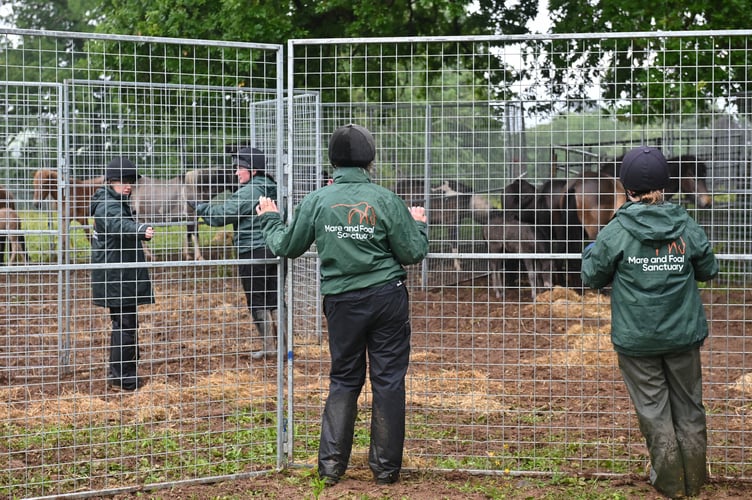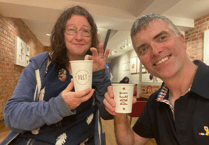HERDS of semi-feral Icelandic horses have been saved thanks to a major collaboration between two equine welfare charities and the RSPCA.
The 15-month operation led to the rescue and protection of 70 of the rare breed horses and foals.
Concerns had first been raised by members of the public in May 2024, which prompted action from Teignnbridge-based The Mare and Foal Sanctuary and World Horse Welfare.
Welfare officers found a number of semi-feral herds of Icelandic horses.
There was unmanaged breeding, with pregnant mares living alongside fighting colts and stallions. Some were found with life-threatening injuries.

The equine charities worked together with the RSPCA across several sites in Devon.
As the owner cooperated, horses were signed over in stages over several months to the three charities.
The locations involved in this operation are not being identified.
The RSCPA says the former owner has cooperated, and no further action is planned at this time.
Two other charities, the Donkey Sanctuary and Redwings Horse Sanctuary supported the operation with extra transport, equipment and expertise.
Blue Cross also stepped in at the conclusion of the case with an offer to rehome some of the horses.
The entire process was a vet-led, multi-agency effort adhering to strict codes of practice upheld by all partners.
Injured horses and those deemed most at risk by the vets were removed first, followed by mares and foals in need of specialist care, then stallions.
Healthy mares and foals were taken last. By the end of summer 2025, all horses had been safely removed
Leah Brock, Senior Field Officer at The Mare and Foal Sanctuary described the operation as a true achievement of collective effort.
She said: ‘I am deeply relieved that all horses involved in this case have now been safely removed.
‘It has been truly humbling to witness the way each charity stepped forward without hesitation, offering their time, resources, and expertise to ensure these equines received the care they needed.
‘The commitment shown to alleviating potential suffering has been nothing short of inspiring.
‘This operation demanded significant manpower and perseverance, often in challenging weather conditions. I am incredibly proud of the role we’ve played in bringing this case to a positive conclusion.’
RSPCA Inspector Sarah Morris, who led for the animal welfare charity, said: ‘This multi-agency approach demonstrated what can be achieved when charities collaborate towards common goals.
‘Each charity contributed specialist skills and knowledge, which allowed us to support the horses and the owner.
‘We encourage the public to work with us, follow guidance, and correctly manage the welfare of their animals, and reach out for help when needed.
‘I cannot praise enough the work of the equine charities involved in this operation; what we achieved was truly amazing.’
Icelandic horses are a unique breed known for their strength, agility, and thick coat, well-suited to cold climates.
They are a hardy and versatile breed, often used for riding, driving, and as working ponies but are quite rare in Britain, with numbers estimated to be around a thousand registered individuals across the UK.




Comments
This article has no comments yet. Be the first to leave a comment.